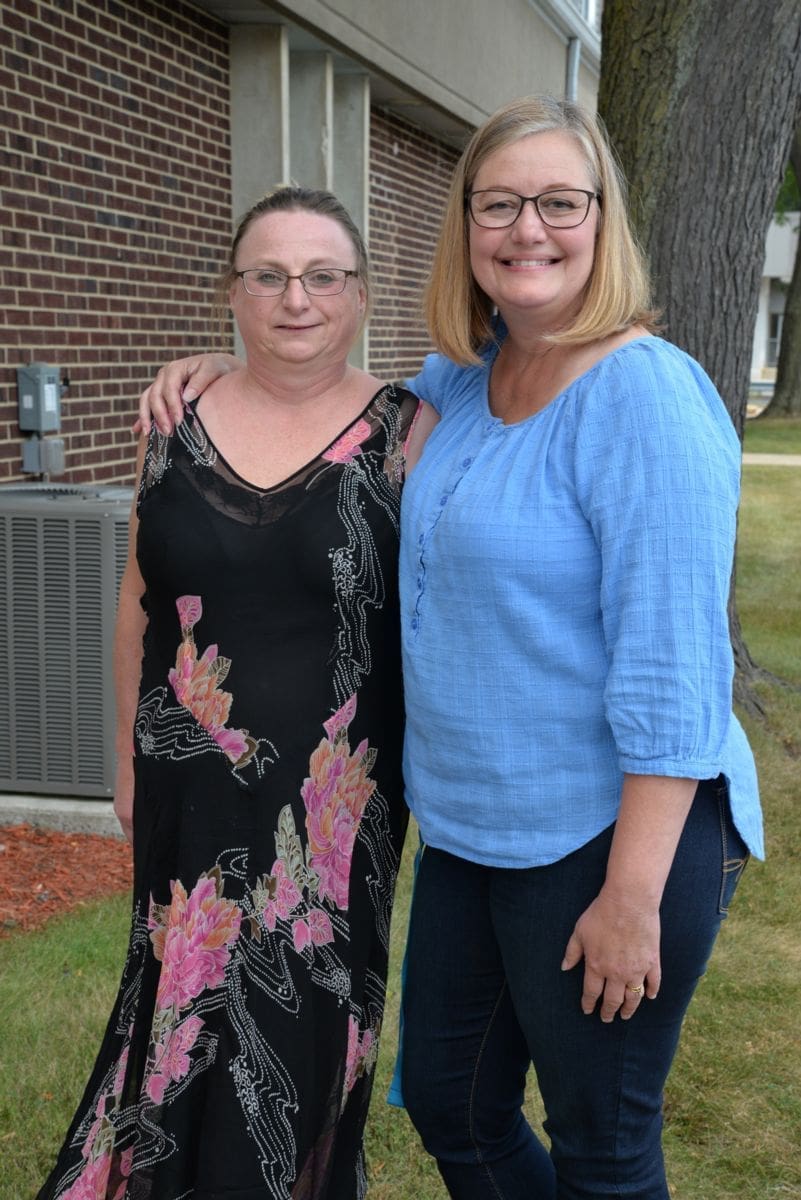UPDATE: (2/23/12) Legislators approved the proposed changes to the Illinois AIDS Drug Assistance Program. The changes will be implemented over the next six months.
Life is about to get much simpler for the 4,200 people who access their HIV medications through the Illinois AIDS Drug Assistance Program (ADAP).
 The program has undergone major changes in the last 18 months or so, including a change in the eligibility requirements and an overhaul of the application process.
The program has undergone major changes in the last 18 months or so, including a change in the eligibility requirements and an overhaul of the application process.
Applicants, including those who have received their drugs through ADAP for years, have had to navigate new and, in some cases, more stringent documentation requirements. But a new set of rule changes, advocated by the AIDS Foundation of Chicago and the AIDS Legal Council of Chicago, should streamline the process, said John Peller, (at right) AFC’s vice president of policy.
As background, ADAP provides life-saving HIV medications to low-income people with HIV who are uninsured or under-insured. ADAP also plays a central role in preventing new HIV cases; new evidence shows that consistent access to HIV treatment can significantly reduce the likelihood that a person with HIV will transmit the virus to an uninfected partner.
On Monday, the Illinois Department of Public Health (IDPH) agreed to a wholesale revision of the ADAP reapplication process that will significantly improve access to HIV medications in Illinois, Peller said. The proposal will be considered by a legislative review panel on Tuesday, Feb. 7.
It is critical for people to contact their legislators and urge their approval of these needed changes, Peller said.

Peller and Ann Hilton Fisher, (at left) executive director of the AIDS Legal Council, recently took the time to shed some light on what has changed with IL ADAP and what hasn’t. What follows is an edited transcript of that e-mail exchange.
Inside Story: Why have there been so many changes in ADAP lately?
Ann Hilton Fisher: Illinois ADAP has been under tremendous stress. When the economy tanked, more people with HIV lost their jobs and their health insurance and turned to ADAP for help. Expanded HIV testing programs brought more people into medical care, the demand for ADAP increased even more. Meanwhile, the state budget crises meant that it was going to be harder and harder for the state to increase its contribution to ADAP.
That would have been bad enough, but then a federal program review revealed that the Illinois ADAP hadn’t kept up with new federal requirements, in particular, the requirement that everyone had to be recertified for eligibility every six months. In the meantime, ADAP had adopted a new on-line application that was meant to speed things up, but caused lots of tension and confusion as clients started using it.
IS: Why are there new regulations now?
AHF: The ADAP regulations hadn’t been changed since 2000. No one complained as long as the program was expanding and going well. But when the program started tightening eligibility requirements and requiring more frequent recertifications, someone noticed that the new policies were inconsistent with the official regulations.
IS: When ADAP first put out the new regulations, AFC and the AIDS Legal Council opposed them. Why? What has changed?
John Peller: We opposed the first draft of the permanent rules because they didn’t distinguish between an initial application and the six-month recertification. This forced ADAP recipients to submit the same documents and information over and over. While this wasn’t such a problem when ADAP required annual applications, it created havoc for clients and case managers to submit a completely new application every six months. The first draft would have set in stone policies that just weren’t working.
The proposed rules were also very inflexible, spelling out, for example, exactly what you would have to submit to prove you had health insurance. We thought it made more sense to just say that people would have to provide information on health insurance coverage, instead of detailing exactly what had to be copied and sent in.
It’s critical that the recertification process stops ineligible individuals from getting on ADAP. But we think it’s possible to do this without drowning people with paperwork.
AHF: The new on-line application process was hard enough for well-educated clients and well-trained case managers, but for any of the hundreds of people with HIV who don’t have case managers, or who have mental illness or dementia, or who don’t read and write English — it could be a real nightmare.
But most importantly, it just didn’t make sense for anyone to have to completely apply all over again every six months, when ADAP already had a lot of the information and it hadn’t changed. Why couldn’t we just do a recertification process that would be a lot easier than having to do a whole new application every time? That’s how nearly every other state handles it.
IS: What changes to the draft rules were you able to negotiate with IDPH?
AHF: There are three major ones. First, people will no longer have to fill out an entirely new application every six months. Instead, the program will ask if you’re currently receiving prescriptions through ADAP and if you say yes, a lot of the questions won’t get asked, like your race or the date you were first diagnosed with HIV or when you became eligible for Medicare. In addition, if ADAP already has the proof it needs, or can get things like your viral load directly from the laboratory instead of making your doctor fill out a form, you won’t have to submit those again.
Second, ADAP staff will take steps to try let people know when their ADAP applications are incomplete and will ask people if they want to name someone else, like a case manager or a family member, who can help them with their ADAP application.
And third, the Department recognizes that it has an obligation to accommodate people whose disabilities make it difficult for them to access ADAP and other HIV programs.
JP: We’re so grateful for the IDPH HIV program leadership — and especially Dr. Mildred Williamson and ADAP Director Dr. Jeff Maras — for listening to our concerns and the community’s concerns about ADAP. And we couldn’t have accomplished what we did without Ann’s leadership.
IS: Will these changes become effective immediately?
JP: It may take up to nine months for changes to be fully implemented, but relief is in sight. We are going to work with IDPH, providers and community members to monitor implementation and troubleshoot as needed.
IS: Generally speaking, how is the IL ADAP program faring compared to other states? Though IL does not have a waiting list, is there still a concern that some HIV-positive individuals are being shut out because of the eligibility requirements?
JP: Thanks to state legislators like Rep. Sara Feigenholtz (D-Chicago), Rep. Greg Harris (D-Chicago) and Sen. Heather Steans (D-Chicago), who pushed for more funding for ADAP, the program was able to help everyone who needed it.
But in July of last year, ADAP funding couldn’t keep up with the need, and ADAP cut eligibility for new applicants from about $54,000 a year for a single person to $32,000 a year. As a result, nearly 100 people will be unable to access ADAP this year, with potentially serious health consequences.
The good news is that ADAP has been proactive about connecting this group to other health programs.
But compared to other states, we’re lucky in Illinois. As of January 26, last Thursday, there were 4,774 people on waiting lists for ADAP services in 12 states. Illinois has never had an ADAP waiting list, and we plan to work hard with IDPH and legislators to avoid one.
IS: What’s next for ADAP?
JP: The Springfield legislative session is about to kick off, and that means the ADAP budget and all state HIV funding will be up for review. State HIV funding available for this year was cut by 5%, or $1.5 million, and the funding cuts were directed entirely at community-based HIV prevention and care programs. We are committed to fighting additional cuts.
But first, legislators need hear that you support the proposed changes before they convene on Tuesday, Feb. 7. Please take a minute to tell legislators to vote yes on the new ADAP rules.
Additional information
-Final proposed ADAP rules 
-Jan. 27 joint AFC/ALCC letter to IDPH recommending rule changes 
-Original proposed ADAP rule 
-Read AFC’s comments to IDPH on the original proposed rule 
-Check out AFC’s ADAP webpage

